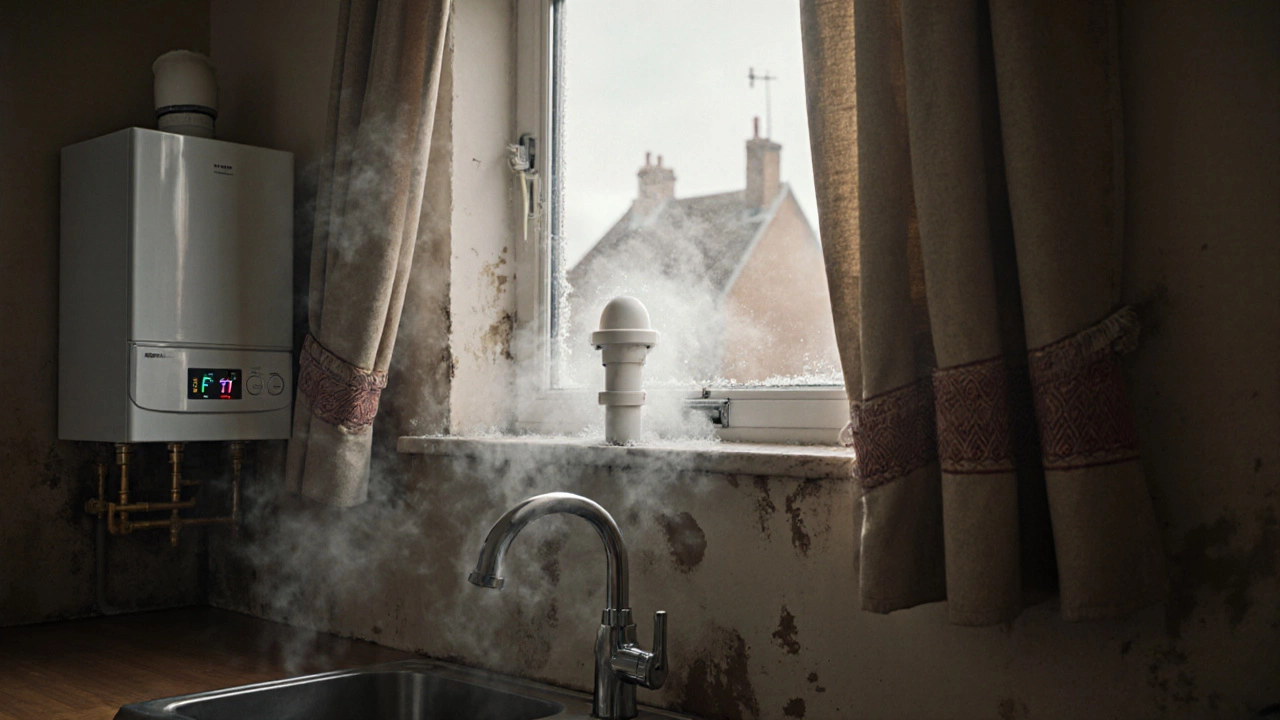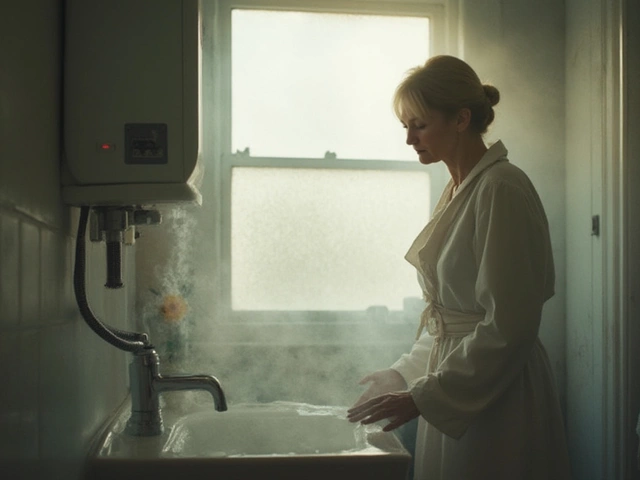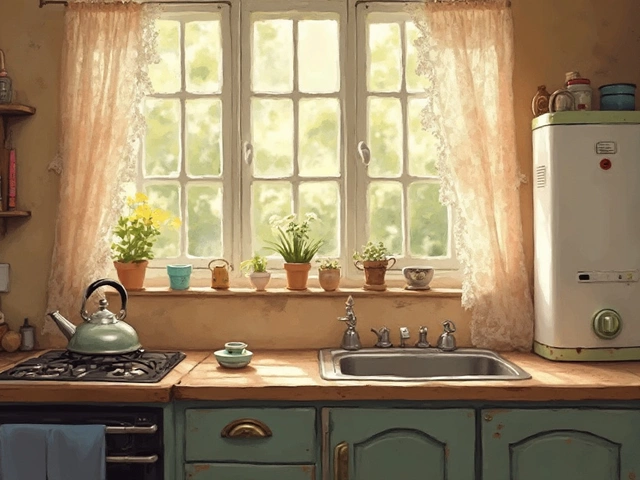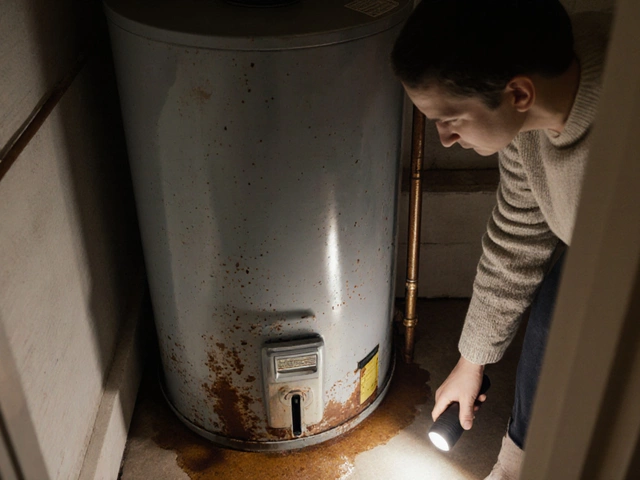If your hot water suddenly vanished - no shower, no washing up, no bath - you’re not alone. Thousands of households in the UK face this same problem every week, especially as the weather turns colder. It’s not just inconvenient; it’s disruptive. But before you panic or call a plumber, let’s walk through the most common reasons why your hot water stopped working and what you can do about it right now.
Is it the boiler or the water heater?
First, get clear on what you actually have. In the UK, most homes use a combination boiler (combi boiler) that heats water on demand. If you have a tank in the loft or airing cupboard, you likely have a regular or system boiler with a hot water cylinder. The fix depends on which one you’ve got.
If you have a combi boiler and no hot water at all, the problem is almost always with the boiler itself. If you have a tank system and only the hot water tap is dead but the radiator still heats up, the issue is likely in the cylinder or its controls.
Check the boiler display
Modern boilers have digital screens that show error codes. Look for anything flashing - F1, F2, F5, F7, or E1 are common. These aren’t random. Each code tells you exactly what’s wrong. F1 usually means low water pressure. F2 often points to a faulty thermostat or overheating. F7 can mean a blocked condensate pipe - a big issue in winter when it freezes.
Don’t ignore the code. Write it down and search it online with your boiler brand. A simple reset might fix it. Turn the boiler off at the wall, wait 30 seconds, turn it back on. If the code comes back, you’re looking at a part that needs replacing.
Low water pressure
Most combi boilers need water pressure between 1 and 1.5 bar. If it drops below 0.5, the boiler shuts down for safety. Check the pressure gauge on the front of your boiler. If it’s in the red zone, you need to repressurise.
Find the filling loop - it’s usually a braided hose under the boiler or near the kitchen sink. Open both valves slowly until the pressure hits 1.2 bar. Close them tightly. Don’t overfill. Too much pressure can damage the system. If the pressure keeps dropping after you’ve topped it up, you’ve got a leak somewhere. Check under sinks, around radiators, and behind the boiler for damp patches.
Thermostat or heating control issue
If your boiler turns on but no hot water comes out, the thermostat might be broken. It’s not always the boiler - sometimes it’s the room thermostat or the cylinder thermostat (if you have a tank). Try turning the hot water setting on your boiler to maximum. If that doesn’t help, check the cylinder thermostat. It’s usually on the side of the tank and has a dial. Turn it up to 60°C. If the water still doesn’t heat, the thermostat may be stuck or faulty.
Older tanks often have a separate immersion heater. If you’ve got one, try switching it on manually. If the water heats up after an hour, your boiler’s heat exchanger or pump is failing to transfer heat to the tank.
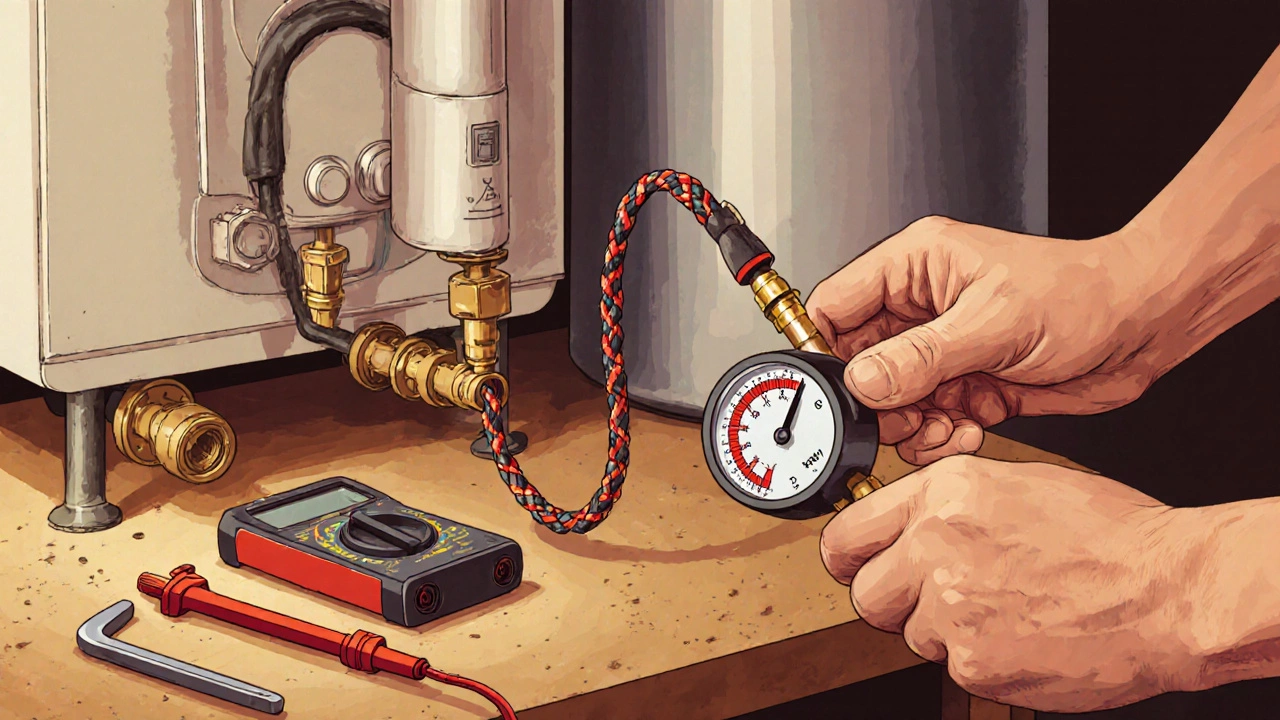
Blocked or frozen condensate pipe
This is one of the most overlooked causes - especially in late autumn and winter. The condensate pipe is the white plastic tube that runs from your boiler to an outside drain. When it freezes, the boiler locks out and stops producing hot water. You’ll often see an F28 or F7 error code.
To fix it, locate the pipe - it usually sticks out from the side of the house near the boiler. Pour warm (not boiling) water over the frozen section. A kettle works fine. Once the ice melts, the boiler should reset itself. If it doesn’t, turn it off and on again. To prevent this next time, wrap the pipe in foam insulation. It’s cheap and easy.
Gas supply or ignition failure
If your boiler makes a clicking sound but never lights up, the gas supply might be cut. Check your gas meter. Is the valve turned on? Is the meter showing credit if it’s a prepay system? Sometimes the meter runs out overnight and you don’t notice.
Also, check if other gas appliances - like your hob or oven - are working. If they’re not, your gas supply is interrupted. Contact your provider. If only the boiler is affected, the ignition system might be faulty. Spark electrodes wear out over time. A professional will need to test and replace them.
Scale buildup or faulty heat exchanger
Hard water is common across the UK. Over time, limescale builds up inside the heat exchanger - the part that transfers heat from the gas flame to your water. When it gets clogged, the water can’t heat properly. You might notice the boiler overheats, shuts off, or makes strange noises.
There’s no quick fix here. You can’t clean a heat exchanger yourself. If your boiler is over 8 years old and you’ve never had it descaled, this is likely the issue. A qualified engineer can flush the system with a chemical cleaner. It’s not cheap, but it’s cheaper than replacing the whole boiler.
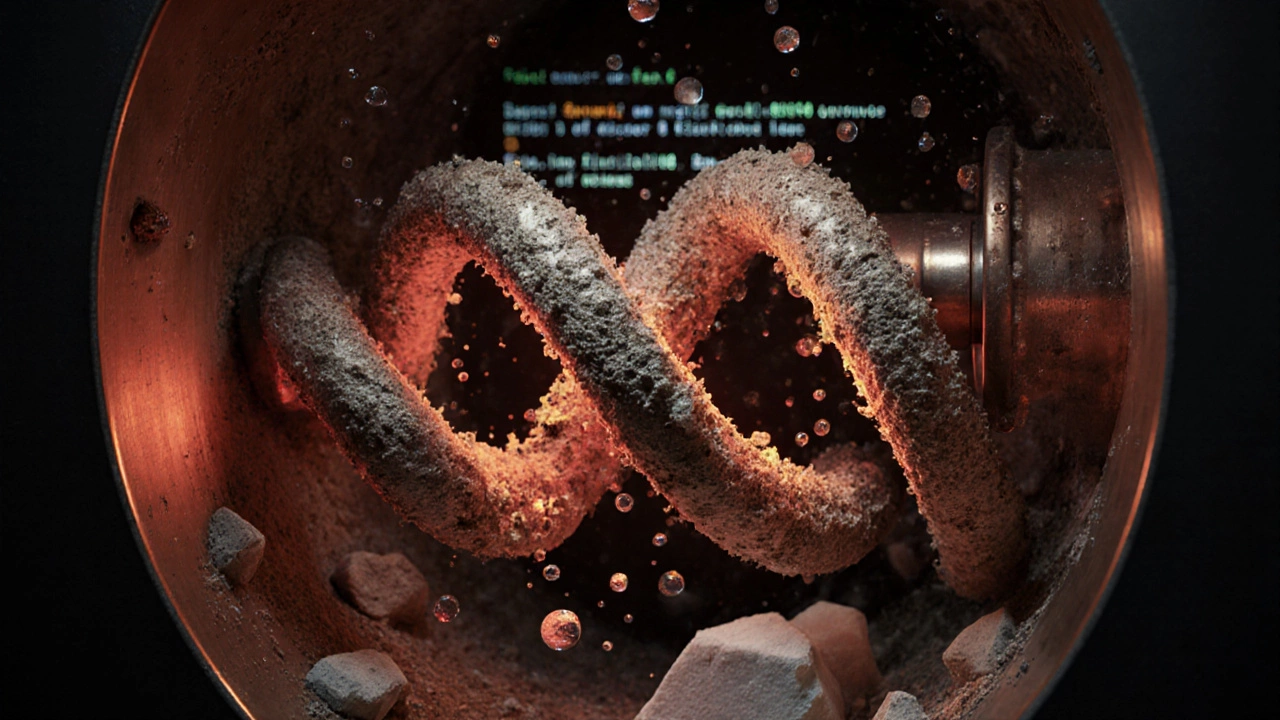
Immersion heater failure (for tank systems)
If you have a hot water tank and no hot water, the immersion heater could be dead. It’s a simple electric element inside the tank. Test it by turning the immersion heater switch on (usually near the tank). Wait an hour. If the water’s still cold, the element has blown.
You can test it with a multimeter - if you have one. If not, try switching the immersion heater off for 10 minutes, then back on. Sometimes it’s just a tripped safety cut-out. If that doesn’t work, you’ll need a new element. They cost around £40 and take a plumber about an hour to install.
When to call a professional
You can fix a lot of these issues yourself - repressurising, unfreezing pipes, resetting the boiler. But if you’ve tried everything and still have no hot water, it’s time to call a Gas Safe registered engineer. Don’t mess with gas lines, electrical wiring, or internal boiler parts unless you’re trained.
Signs you need help:
- You smell gas
- The boiler is leaking water or steam
- You see black soot around the boiler
- The boiler keeps turning off after a few minutes
- You’re not sure what the error code means
Always check the Gas Safe Register before hiring anyone. Type in your postcode at gas-saferegister.co.uk. It’s free. Never let someone work on your boiler if they don’t show you their card.
Prevent future breakdowns
Hot water problems don’t come out of nowhere. They’re usually the result of years of neglect. Here’s how to avoid another emergency:
- Get your boiler serviced every year - even if it seems fine
- Install a water softener if you live in a hard water area like Bristol
- Insulate your pipes and condensate line in autumn
- Check your boiler pressure monthly - it should stay between 1 and 1.5 bar
- Replace your boiler if it’s over 12 years old - newer models are 30% more efficient
A yearly service costs around £80. A new boiler can cost £2,000 to £3,500. One service is cheaper than one emergency call-out in the middle of winter.

